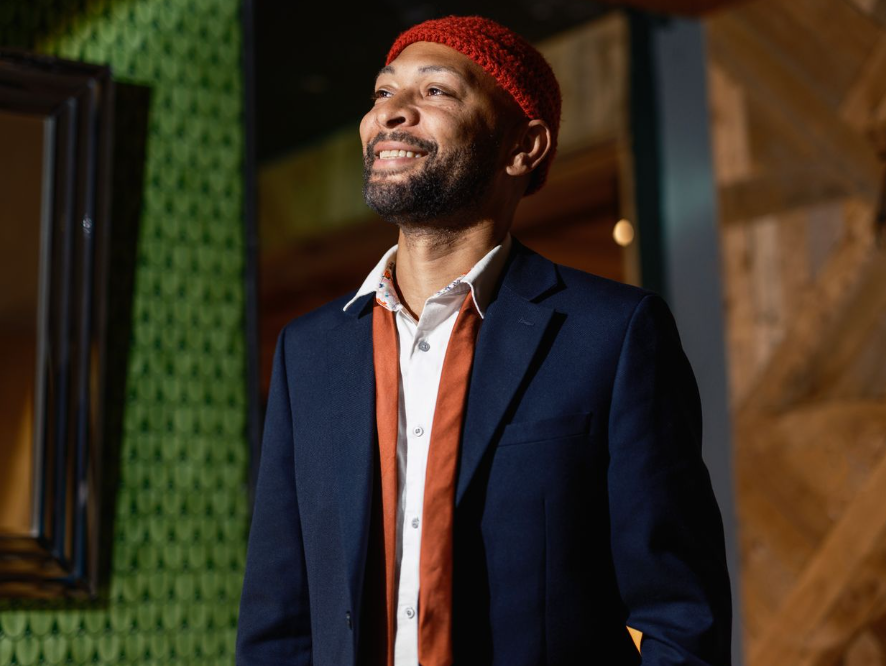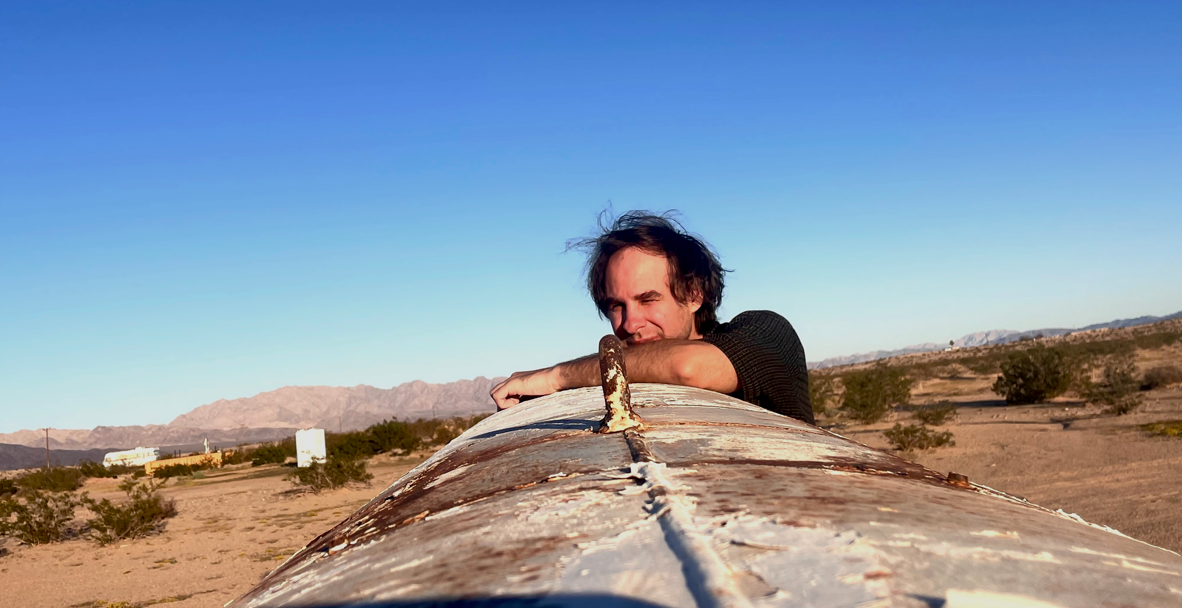Tv
“I May Destroy You” Is Your Guide to Being a Trauma-Informed Friend
03 Sep, 20

I May Destroy You / Screenshot from YouTube.com
While the show itself could be considered triggering because of its intimate tango with sexual trauma, Michaela Coel’s I May Destroy You is spot on in its depiction of the inner, outer, and everything in-between forms that trauma morphs into as it takes life hostage.
The show revolves around the stories of three complex characters battling their own angels and demons: Arabella, a Ghanaian woman loosely-based on Coel IRL, her friend Kwame, a Ghanaian gay-identifying male, and Terry, her best friend. All three experience nuanced forms of sexual trauma and deal differently.
TRIGGER WARNING: Discussion of sexual assault and rape.
Arabella oscillates between insight into and dissociation from her understandably erratic behaviors after being roofied and raped. Meanwhile, Kwame holds emotional intimacy at arm’s length, paralyzed by his sexual assault at the hands of a man who he had previously chosen to have intercourse with. At the same time, Terry, “nurturer” extraordinaire, is re-processing being manipulated into a threesome, but tries to avoid her own trauma by focusing on her friends.
Watching I May Destroy you may be cathartic for the many people who have experienced trauma, but it’s also a lesson on how to be a trauma-informed friend. While all three characters keep each other afloat, the show highlights Terry’s especially trauma-informed manner towards main character Arabella.
So, what does a trauma-informed friend do?
Learns and Unlearns
In Episodes 1 and 2, Terry quickly recognized that Arabella was not acting like herself. Although the show didn’t explicitly state this, Terry clearly educated herself on trauma, supportive friendships, and implicit biases in society (and ourselves) about sexual trauma. When using appropriate sources (and avoiding fake news), the internet offers plenty of valuable information that Terry may have used to understand the situation as a friend. Terry’s learning and unlearning facilitated her support of Kwame’s often ignored version of trauma, and her actions helped Arabella see possible harm in making a black and white distinction between survivor and not survivor.
Gives Space, Doesn’t Judge
Terry provided space for Arabella to express her trauma when she was ready. She didn’t judge Arabella for finding stability in social media advocacy (which eventually consumed her), when Arabella brought problematic friend Theo to her birthday, or when Arabella lost funding for her unwritten book. She listened when Arabella was ready to face the baggage underneath her bed, and when she needed company frequenting the bar from the night of the rape. This isn’t to say a trauma-informed friend can’t have feelings: there were times where Terry articulated her feelings – an eye roll about Theo, a light jab about social media. Those small moments said, without saying, “I may not agree, but I’m with you and I respect you.”
Knows That Their Friend Is Trying Their Best AND Holds Them Accountable
Terry didn’t take Arabella’s self-centeredness personally, and she trusted the person – the Arabella – she was best friends with, or as they would say, “Your birth is my birth; your death is my death.” Terry knew Arabella didn’t want to be in the situation she had been put in, and she was trying her best to find her way out. It wasn’t about Terry, even if she dealt with the consequences of Arabella going through the thick of her recovery. And even if Arabella was trying her best, Terry always reminded her that she could do better – she could write, she could grow, and she could find herself, even if it was a different self, again.
Empowers Their Friend to Make Independent Choices and Is There When Called Upon
Lack of choice during a traumatic event can shake up an individual’s internal world. A man forcibly raped Arabella: she didn’t have control, and this broke a fundamental trust she had in the world. Terry supported Arabella in learning from her own choices, while also providing tough love. On Halloween she requested Arabella not smoke or use social media during paint night, but she didn’t walk away when Arabella wanted to do what she felt was best. She assisted Arabella in making a video requesting advice from a writer when Arabella asked for help, and was beside her during medical and forensic appointments. Terry refrained from providing advice, unless she felt the situation was dangerous, such as Arabella going to Italy to visit her toxic old flame.
Builds on Strengths – Trauma Survivors are Not Defined by Their Damage
It is common for people who have experienced trauma, because it can be so all-consuming, to have trouble separating themselves as distinct entities from their trauma. Arabella, while influenced by traumatic events external to herself, was not her rape. She was an intelligent, witty, fun, and loving human being with a burning passion for discovery, writing, and truth. Terry never lost sight of Arabella’s strengths, even when Arabella did. Her strengths never ceased to exist, even when rusty or hidden. Terry was supportive of Arabella’s forte in maintaining strong relationships and in using her own tenacity and grit to reconstruct her trauma story, as this was therapeutic for her. And in trying new methods – whether it was yoga, podcasts, social media, or support groups. Strengths can keep the thread we are hanging on intact.
Self-Care For Everyone
This one is probably the most well-known. Doing sh*t for ourselves helps us get out of ruts. And self-care doesn’t mean we’re making an excuse for not trying. Self-care is historically rooted in feminism as a way to regain the energy it takes to do the work. Terry enthusiastically arranged workouts and paint nights, and while at times she neglected herself by tending to others, Terry recognized that she needed to do her own processing: she wasn’t wholly responsible for Arabella’s life. Supporters are human too!
Loves Honestly and Authentically
Terry didn’t always do honesty, but her love never left. Throughout the show, Terry was carrying immense guilt for telling Simon it was OK to leave Arabella that night, a secret she kept from Arabella until the season’s very end. Did this make the rape Terry’s fault? No. A woman should be able to go out without a man drugging and raping her. And while some of Terry’s actions may have been born from guilt, they were most authentically rooted in love. Terry’s love for Arabella came before her guilt or her need to help, and this is why Arabella so easily forgave Terry once she came clean. In fact, Terry’s vulnerability was a form of love that allowed space for Arabella to be vulnerable too. And thanks to her own relentless work and in part thanks to Terry’s unconditional love, Arabella slowly began to regain trust in the world again.
I know what you’re thinking: being a trauma informed friend sounds daunting, perhaps impossible. It’s no walk in the park, but in the end, never forget that love, when in its purest form, withstands mistakes.
- Michaela Coel on Symbolism in I May Destroy You and Social … ›
- I May Destroy You’s Weruche Opia Almost Said No to Michaela Coel … ›
- How ‘I May Destroy You’ Forged TV’s Most Beautifully, Brutally … ›
- Review: Michaela Coel’s ‘I May Destroy You’ Considers Violence … ›
- I May Destroy You on HBO: Weruche Opia Interview ›
- The Friendships at the Heart of ‘I May Destroy You’ – The Ringer ›
- Arabella & Theo’s Friendship On ‘I May Destroy You’ Is Complicated … ›














